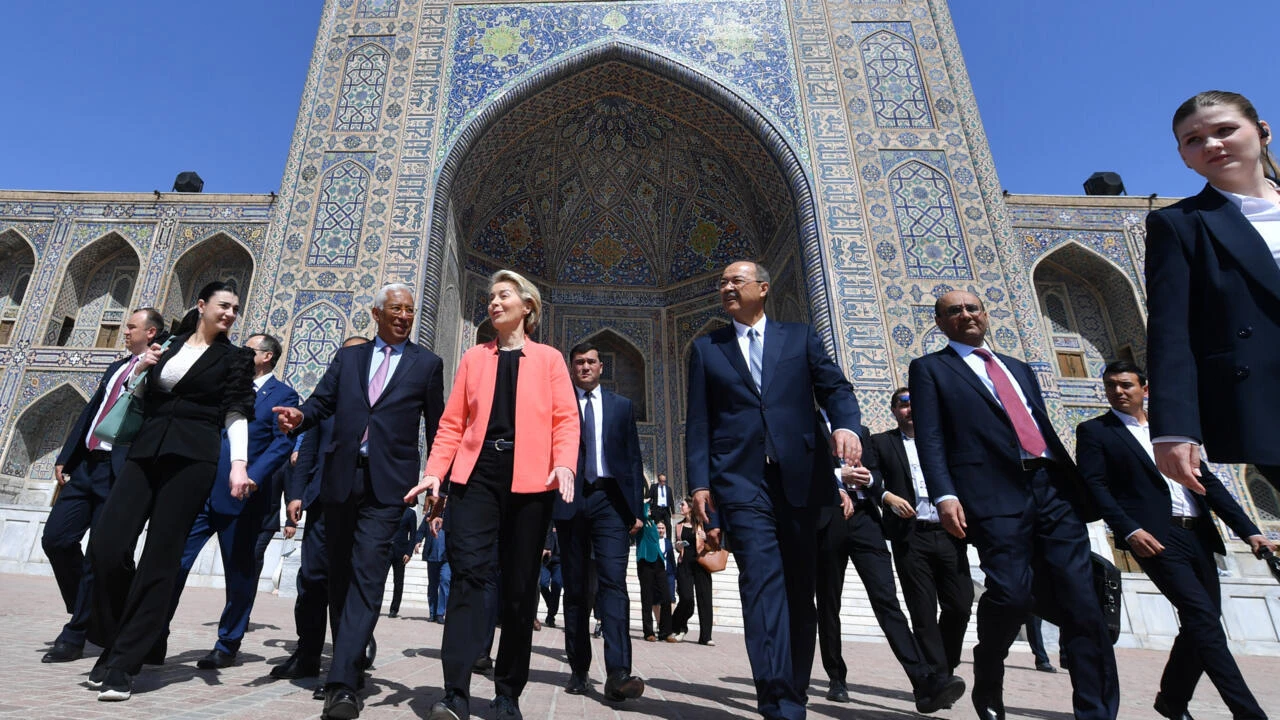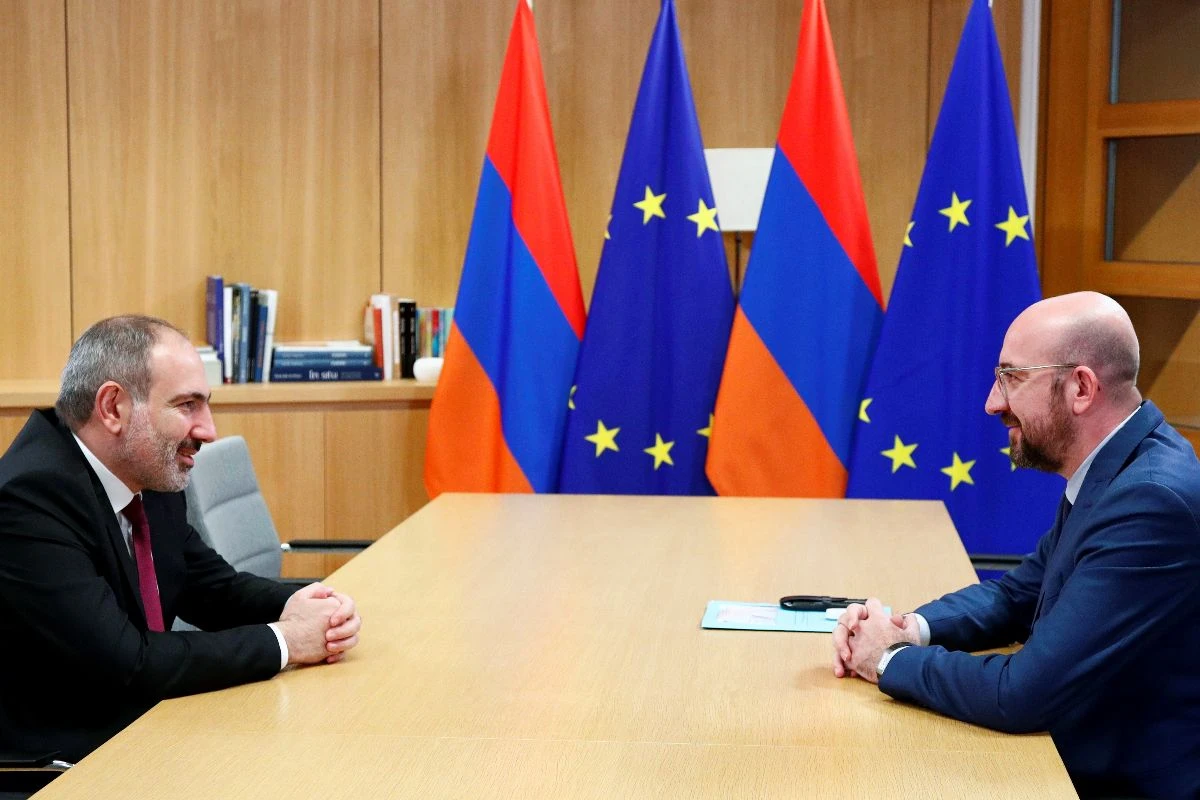EU prepares countermeasures against US tariffs, warns of economic fallout
 European Commission President Ursula von der Leyen holds a press conference in Samarkand on April 3, 2025, ahead of the EU-Central Asia summit. (AFP Photo)
European Commission President Ursula von der Leyen holds a press conference in Samarkand on April 3, 2025, ahead of the EU-Central Asia summit. (AFP Photo)
The European Union is preparing further countermeasures in response to newly imposed US tariffs, according to European Commission President Ursula von der Leyen, who called the policy a threat to global economic stability.
Speaking from Samarkand during the EU-Central Asia Summit, von der Leyen expressed regret over U.S. President Donald Trump’s decision to impose tariffs on numerous trading partners, including a 20% rate on EU goods.
“Mutual tariffs will have immense consequences. The global economy will suffer, uncertainty will increase, and protectionism will rise. The outcome will be devastating for millions worldwide,” she said.
In a social media post on X, Leyen stated, “The universal tariffs announced by the US are a major blow to businesses and consumers worldwide. Europe is prepared to respond. We’ll always protect our interests and values. We’re also ready to engage.”
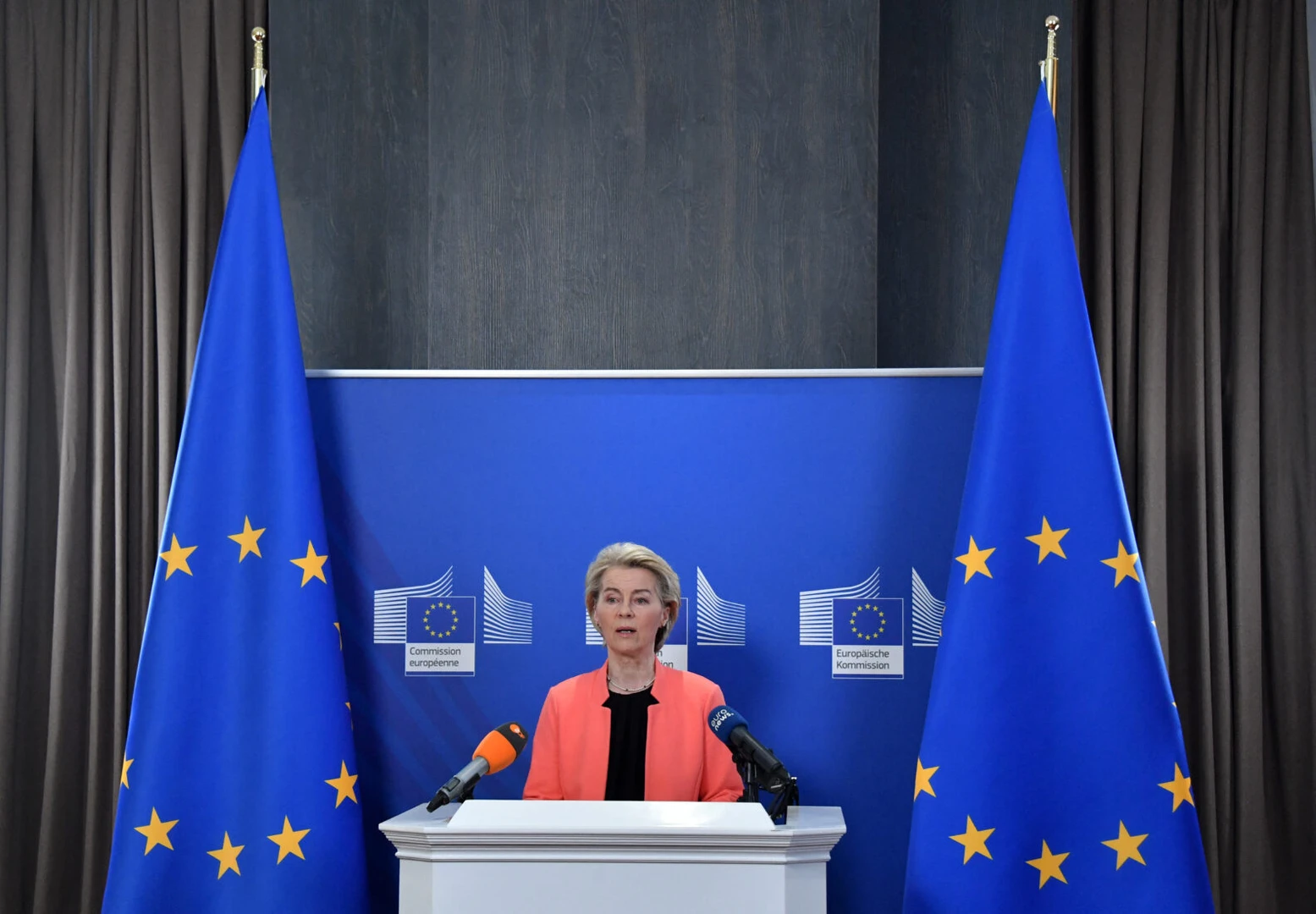
Inflation and consumer costs expected to rise
Von der Leyen emphasized the immediate impact of the tariffs on global consumers.
- Food, transportation, and medicine costs are expected to rise
- Inflation is likely to worsen globally
- Trade-related bureaucracy and disruptions in supply chains will increase
“Millions will face higher supermarket bills. Medicine and transport will become more expensive. Inflation will rise,” she warned.
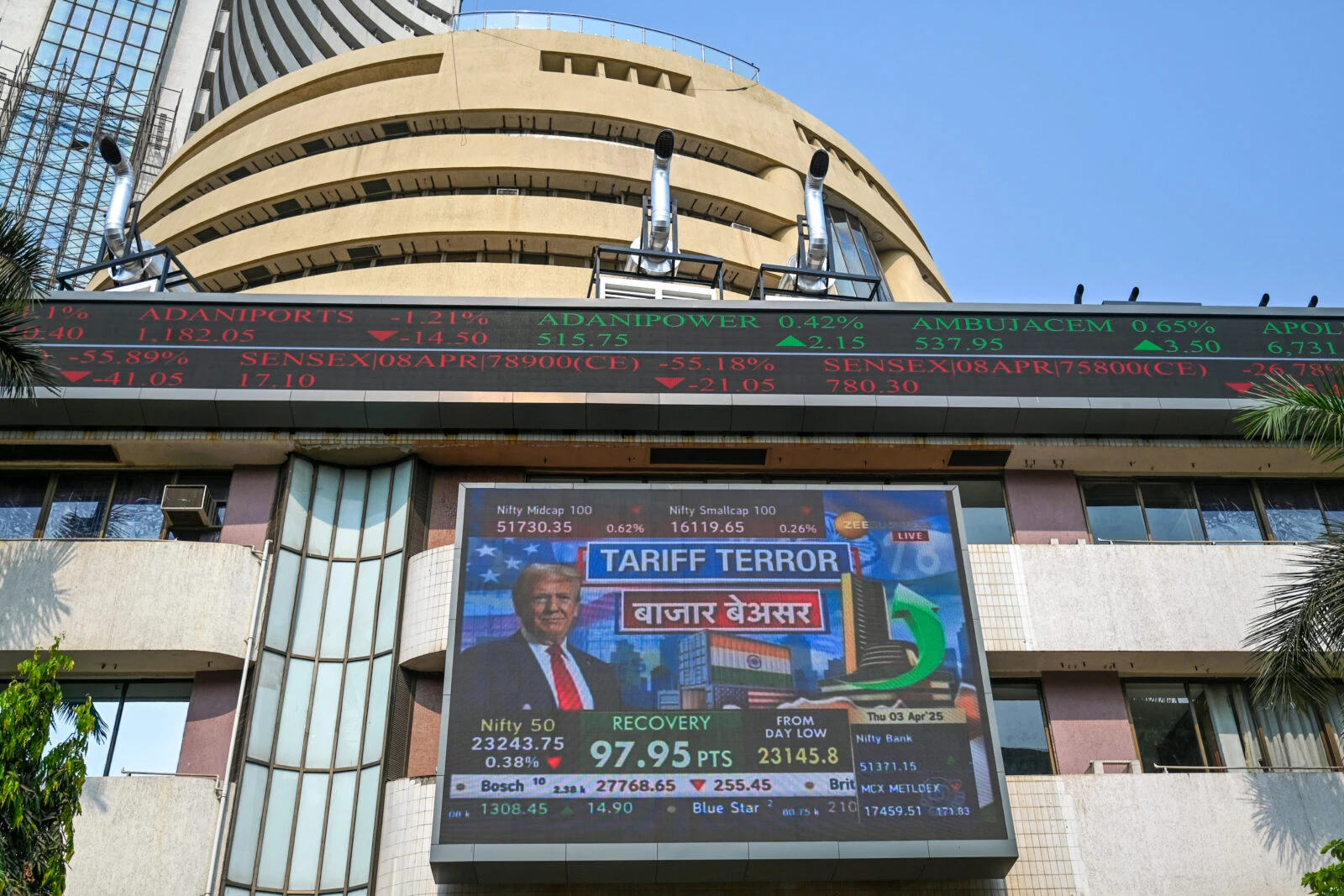
Trans-Atlantic trade costs to grow
Von der Leyen noted that doing business with the U.S. will become significantly more costly due to rising trade barriers and regulatory burdens.
“There’s no longer order in the global trade system. The U.S. is dragging its trade partners into chaos,” she said.
While acknowledging deficiencies in the current trade system and unfair practices, von der Leyen said that tariffs should not be the first or only solution.
“We’re always ready to negotiate with the US to eliminate trade barriers. But we’re also prepared to respond,” she added.
The EU has finalized its first response package targeting U.S. tariffs on steel and is now working on further measures should negotiations fail.
Despite the harsh rhetoric, von der Leyen reiterated the EU’s willingness to engage in dialogue. “We will protect our interests and values. But solutions can still be found through negotiations,” she concluded.
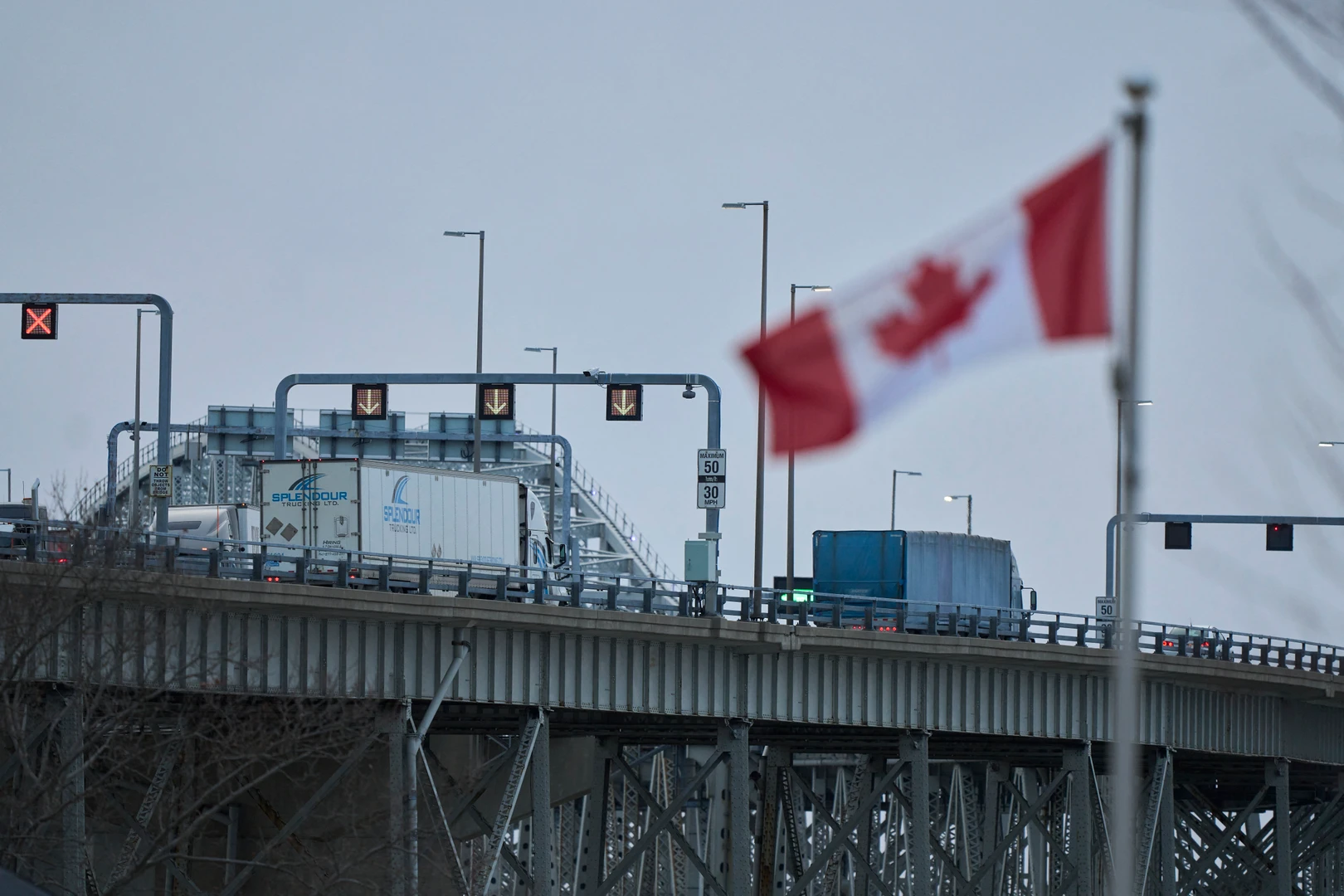
Italy, China, and Japan voice concern
Italian Prime Minister Giorgia Meloni criticized the U.S. decision, stating it is not in either party’s interest.
“We will do everything we can to reach an agreement. A trade war would weaken the West and benefit global competitors,” she said.
Italian Foreign Minister Antonio Tajani echoed her concerns, urging for a pragmatic response based on dialogue and joint EU cooperation.
Meanwhile, China’s Ministry of Commerce called the tariffs “a unilateral bullying act” that violates international trade norms and promised “resolute” countermeasures.
Japan’s Trade Minister Yoji Muto said Tokyo is evaluating all options in response. A task force has been established to analyze the impact of Trump’s 24% tariffs on Japanese goods.
Germany said Thursday that it backed the European Union in its efforts to seek a “negotiated solution” with Washington over new tariffs but also warned the bloc was ready to hit back.
“We have always pushed for negotiations, not confrontation,” said Robert Habeck, economy minister of Europe’s biggest economy, adding that the EU was ready to give “a balanced, clear and determined response” if talks fail.
The European Union is “ready for a trade war” with the United States and plans to “attack online services” in response to Donald Trump’s announcement, the French government spokeswoman said Thursday.
“We are pretty sure that we are indeed going to have an adverse effect on production,” Sophie Primas told broadcaster RTL, expressing particular concern about the impact on wine and spirits.
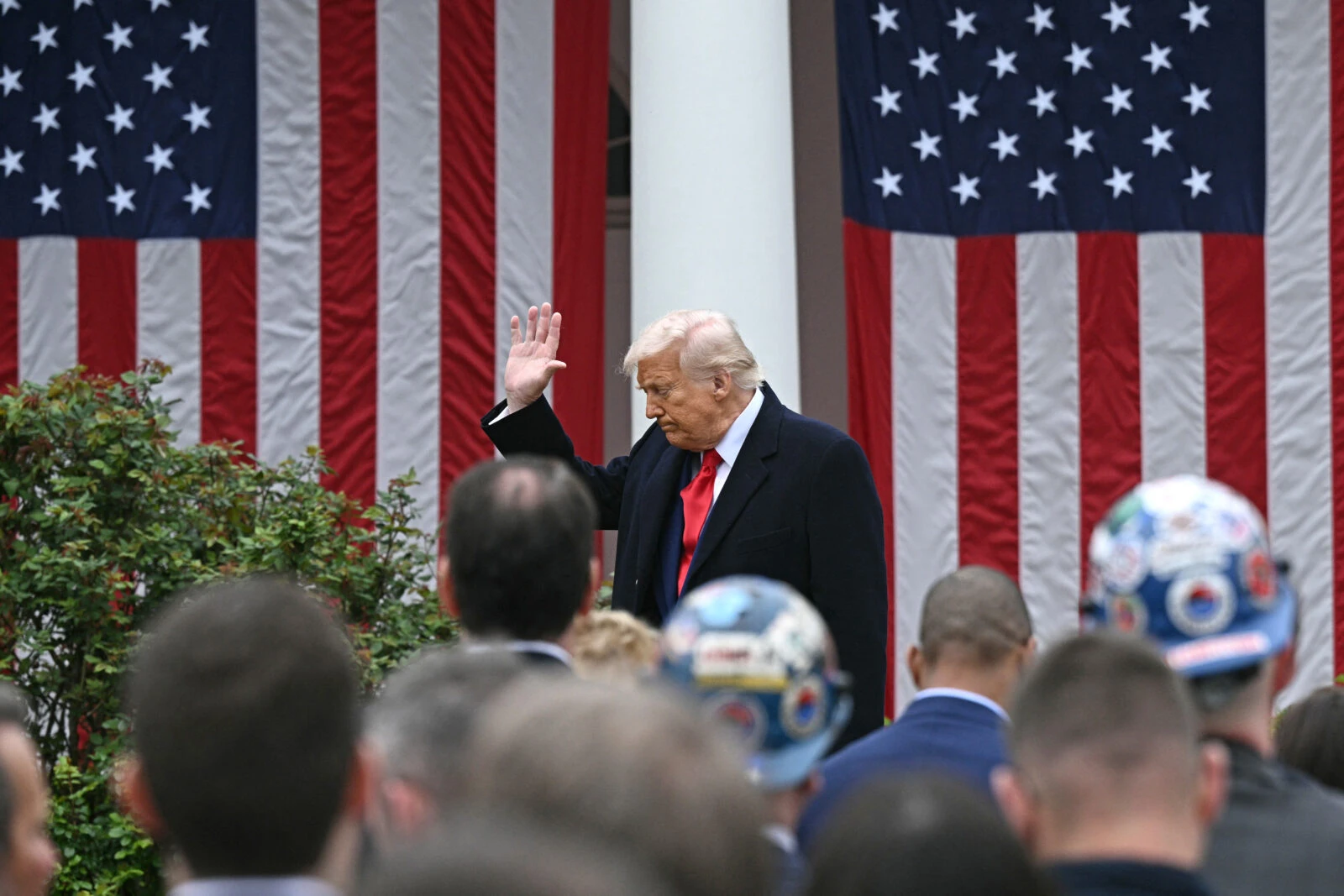
US Treasury urges restraint, EU trade chief slams policy
U.S. Treasury Secretary Scott Bessent advised nations not to retaliate, suggesting that higher tariffs would be avoided if others refrained from response.
“If you don’t retaliate, this is the high end of the number,” Bessent said.
Bernd Lange, Chair of the European Parliament’s International Trade Committee, condemned the tariffs as “unjustified, illegal, and disproportionate.”
“Today is not Liberation Day, but Inflation Day,” Lange said, warning of a downward economic spiral. He affirmed that the EU would respond with “legal, legitimate, proportionate and decisive measures.”
Trump declares ‘economic independence’ with tariff policy
President Trump signed an executive order establishing a minimum 10% baseline tariff on most imports, excluding Canada and Mexico. Higher rates are applied to selected nations, including:
- China: 34%
- European Union: 20%
- Vietnam: 46%
- Taiwan: 32%
- Japan: 24%
- India: 26%
Türkiye is also among the countries subject to the 10% tariff. The new import duties will take effect beginning April 5.
“This is our declaration of economic independence,” Trump stated, claiming the move would stimulate domestic production and reduce trade imbalances.
Markets reacted negatively, with the Nasdaq and S&P 500 experiencing sharp declines.
